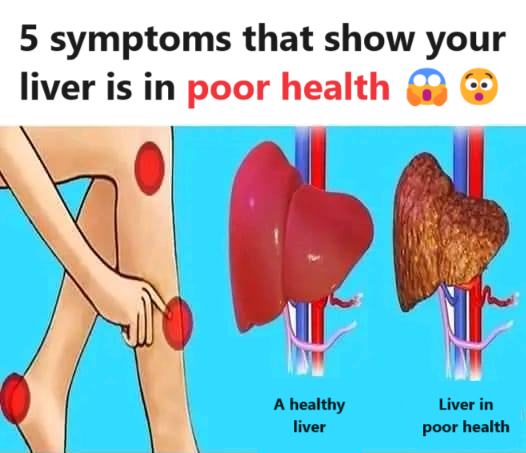1. “Brain Fog”
Brain fog is a general term used to describe suboptimal cognitive function. Symptoms of “brain fog” often include: inability to concentrate, lack of awareness, memory problems, and slow response times.
According to the American Liver Foundation, it is possible for toxins to accumulate in areas of the brain. When this happens, the above-mentioned symptoms of brain fog often occur. Additionally, progressive mental confusion may be an underlying symptom of liver disease.
2. Chronic Fatigue
Chronic fatigue – fatigue that is unusually long in duration and frequency – is one of the most common symptoms of liver toxicity. Physiologically, toxins in the liver often disrupt muscle metabolism, which can lead to pain and physical fatigue.
Worse yet, chronic fatigue can often manifest in emotional and mental instability (eg: brain fog). Sometimes the condition can lead to more serious mental health problems, such as depression.
3. Allergy Symptoms
A healthy liver will produce antibodies which, in turn, seek out and eradicate allergens in the liver.
However, an unhealthy liver will instead store allergic substances instead of eliminating them. This accumulation of allergens causes the brain to launch a defense mechanism against perceived threats; Which it does via the creation of histamine. This response loops systematically, resulting in the accumulation of the chemical. When this happens in a person with a fatty liver, allergic symptoms – headaches, itching, skin irritation, etc. – often surface.
4. Hypertension
A person with a fatty liver is more likely to have high blood pressure (hypertension). However, the real danger lies not only in the symptom, but its effect on the body. A liver covered in fatty tissue, combined with high blood pressure, can either: (1) promote liver disease or (2) signify advanced states of liver disease.
Continued on next page
Compounding the problem is the fact that hypertension is often accompanied by high cholesterol. This can lead to blood clotting – a dangerous and potentially fatal condition.
5. Profuse sweating and/or body odor
The liver is a disproportionately large organ. When it becomes overloaded, it naturally releases a large amount of heat. This is a common occurrence in a person with fatty liver.
Of course, the high heat transferred throughout the body causes sweating, as the body attempts to regulate its temperature and cool itself. Excessive sweating leads to unpleasant body odor…and the heat, sweat, stench cycle repeats itself.
What you can do…
Fortunately, the liver follows the trend of other organs in that it can self-heal to a degree. We will give you some ideas on what can be done to initiate this healing response. Of course, these ideas are also beneficial for maintaining liver health.
– Eat a balanced and nutritious diet
This point simply cannot be emphasized enough: eating and nutritional habits have a big impact on liver health. As such, try to prioritize a good balance of your diet: fiber sources, high-quality proteins, healthy fats, whole grains, etc.
– Avoid alcoholic drinks.
Even moderate amounts of alcohol do significant damage to the liver. In advanced stages, the liver becomes scarred and swollen (known as cirrhosis) – a condition that can be fatal.
– Know your medications and supplements.
There are a range of medications that include liver problems as a side effect. Many of them say so on the package! Supplements are not regulated, which also requires caution.

